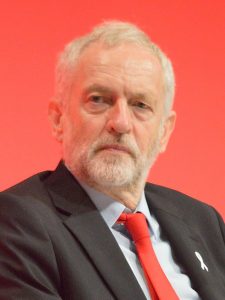When Ringwood council discussed the Vulnerable Persons Relocation Scheme, Cllr Jeremy Heron decided that resettling displaced refugees from Syria would be “a gesture of the worst kind”. Christchurch MP Christopher Chope argues that there is a stark contrast between “genuine refugees” and illegal immigrants who should be imprisoned.
Ringwood council.
In a Ringwood Council meeting, councillors argued that a refugee family would be “isolated” and that the council’s stretched funds should be spent on local residents. They also argued that council housing was already occupied. They rejected the idea and moved on.
The problem with their argument, is that their reasons are incorrect.
- The VPRS has premeditated ways to ensure integration into the local community, such as English language lessons.
- The scheme is government funded: they GIVE money to the council’s to cover the costs.
- Refugees do not go into council housing, they go to private housing or volunteers’ homes.
So what action did the students take?
Christchurch MP.
For a different perspective, I interviewed Christopher Chope, Conservative Christchurch MP. He has previously attempted to establish a new law under which illegal immigrants in the UK would be fined up to £5000, imprisoned for six months and then deported. I asked him whether this considered non-refoulement, which protects people from deportation if their countries are unsafe. Watch below:
Pros & Cons of refugee resettlement.
While xenophobia does play a part in Brits wanting to close its borders to refugees, there are more substantial arguments as to how they could impact Britain. The reality of the situation is that many councils are wary to open their communities to the refugees in case of negative repercussions. Angela Merkel served as an example that nobody wants to follow.
Addressing the reality.
Realistically, there are challenging consequences following the resettlement of refugees in the UK. It would put more pressure on the economy in this time of uncertainty with Britain leaving the EU. The NHS is under pressure and lacking funds to look after the people who are already here, and those who have fled Syria will be in need of short and long-term medical and psychological care due to trauma, living in harsh conditions and to recover from injuries sustained from bombing and torture. There are already not enough school places for children in the UK, with many children attending less-desired schools. Elderly people are freezing to death because they can’t afford to heat their homes. Also, the language barrier would be a problem because hospitals, job centres, schools, etc would need to hire (expensive) interpreters. Where would the extra money come from?
Any MP’s main argument will be that the council’s funds are being cut.
Brits are tolerating the economy suffering for Brexit, in order to reap the long-term benefits. Why don’t we, as a nation, feel the same way about a humanitarian crisis?
The benefits of resettling refugees.
Once the refugees are settled into housing and employment, they would contribute to the economy by increasing consumption and because they are largely working age and children. If the only councils who volunteer to relocate the refugees are in ethnically diverse areas, this may stagnate integration if there is such a high concentration of Syrians in fewer areas. Would it be better to relocate some families to Ringwood and other less diverse areas?
Many Brits seem to think that if people are different, it means they are primitive and dangerous. Don’t fall victim to Trump-like rhetoric of ‘they are not sending their best’. Yes, there will be some who commit crimes, but we shouldn’t dismiss the refugees who are professionals, parents and scared children. There are 22 universities in Syria – people had jobs, families, homes and lives. Just like us.
Where is the money? A tangent on double standards.
Trident nuclear weapons system.
In regard to Britain lacking money, we are possibly about to spend in excess of £40 billion to renew our Trident nuclear weapons system. This figure seems to be rapidly increasing, and a recent estimate valued the renewal at £205.3 billion.
A system whose purpose is to retaliate to nuclear bombing on a scale that would cause “grotesque” humanitarian disaster. With that in mind, one of the four Trident submarines, HMS Vanguard (carrying nuclear weapons) previously collided with a French submarine, Le Triomphant, which was also carrying nuclear weapons. A BBC correspondent described it as “a one-in-a-million chance when you think how big the ocean is”, but actually, this has happened before. Nuclear engineer, John Large, explained how this type of incident happens,
“Both navies want quiet areas, deep areas, roughly the same distance from their home ports. So you find these station grounds have got quite a few submarines, not only French and Royal Navy but also from Russia and the United States.”
Nick Harvey, Liberal Democrat spokesperson, claimed that “if there were ever to be a bang it would be a mighty big one” – a huge underestimation of the destructive potential of two nuclear vessels colliding. With this risk in mind, why are we considering spending £40-205 billion on this when it could go towards the struggling public services?Where have the government plucked this amount of money from?If there is no money, this expenditure wouldn’t even be considered.

‘Representative’ MP’s.
On a smaller scale, a peek inside the politician’s expenses will show that many claim expenses on their Additional Costs Allowance (taxpayer’s money) to pay for things, rather than using their salary earnings as ordinary people do.
Here is a summary of our local MP’s in the expenses scandal.
Christopher Chope employs his wife Christine as his secretary for between £45-50,000 per year, around double of a standard secretarial salary. He has also hit the headlines for claiming £881 to repair a sofa, >£2,600 to buy and install a bathroom for his second home and £10,337 to repair the roof of his second home. All this is paid for with taxpayers money.
A quick look into the expenses of several MP’s show that in one year they spend as much money on stationary (not including printing or anything office related, just stationary) as some people spend on one month’s rent. Many MP’s also claim for ‘necessary’ work on their second (outside the constituency) homes with the ACA. Why do they have this privilege? The working and middle classes would have to pay for repairs on their homes from their own salaries. The NHS is moving towards insolvency and privatisation, meaning those who need the money the most are going to suffer the hardest, while politicians have special privileges. It’s also common for politicians to come from affluent backgrounds so they’re already given a headstart in life before they start getting overpaid. I accept that their job is demanding, carries a lot of responsibility and requires expertise, but is politics about living a prestigious life or about improving the country?
The Conservatives seem to be concerned about the greater good of the UK in terms of wealth and reputation through traditional values and patriotism, they seem to be out of touch with ordinary people because they are on a ‘higher level’. They are not like the parents you see at the school gates or the people shopping in the supermarket. They live a different lifestyle to us ordinary people and are so disconnected from the issues they are voting on.

It’s easy to say that there aren’t enough funds for the public sector but the pay gap exposes the need for a levelling out of money. Jeremy Corbyn has proposed a maximum-wage. Joseph Harker (the guardian) responded to this proposal by saying it was unlikely and would cause uproar from businesses, suggesting instead that the highest incomes should receive heavier taxes:
“Theresa May said this week she believes in sharing. There’s no better way to do this than to have those who earn the most contribute the most. As their rewards skyrocket, our business chiefs should be made to pay higher rates. Why stop at 50% when 60% or even 70% could be imposed on the very highest earners?”
We are hearing the same message that there is no money anywhere to help with societal issues. In the same way that British people don’t want to share what they have ‘earned’ with immigrants, the richest people are unwilling to share what they have rightfully earned, which is understandable. The problem is that those at the bottom aren’t thriving, so we need to reform the structure, which is not working for enough people.
Another issue is that we are living in a dogmatic society where unless we actively seek out this information, we are unaware and blindly conform. The vastness of the internet can be insignificant if you don’t know where to look, or if you have no reason to search for it. This can affect how people vote because older people may stick to their habits and their children may copy their vote choice. However, the priorities for the elder generation are not necessarily the same as the younger generation. An example of this is our local MP, Mr. Chope. He has voted against same-sex marriage, against equal gay rights, against the fox hunting ban, against the smoking ban and against human rights and equality laws. Attitudes change and progress over time, and we need to apply that change and progress to our MP’s.
Filming and editing by Saakshi Bowri.
Leave a Reply